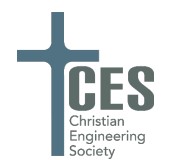Document Type
Paper
Abstract
This study explored the extent to which faculty report teaching engineering and computing students about ethics and societal impacts (ESI) in courses and via co-curricular activities. The research questions were to determine if there were differences in the topics, teaching methods, assessment methods, and satisfaction with ESI instruction between faculty from religiously-affiliated (RA) and non-religiously affiliated (NRA) institutions. A national survey was conducted, with about 1400 responses. This included 122 faculty from 60 RA institutions (across 17 denominations/faiths). Chi-square tests evaluated statistically significant differences (p
Creative Commons License

This work is licensed under a Creative Commons Attribution-Noncommercial-No Derivative Works 4.0 License.
Copyright
© 2017 Angela Bielefeldt. All rights reserved.
Publication Date
June 2017
Institutional Differences in the Education of Engineering and Computing Students About Ethics and Societal Impacts
This study explored the extent to which faculty report teaching engineering and computing students about ethics and societal impacts (ESI) in courses and via co-curricular activities. The research questions were to determine if there were differences in the topics, teaching methods, assessment methods, and satisfaction with ESI instruction between faculty from religiously-affiliated (RA) and non-religiously affiliated (NRA) institutions. A national survey was conducted, with about 1400 responses. This included 122 faculty from 60 RA institutions (across 17 denominations/faiths). Chi-square tests evaluated statistically significant differences (p

